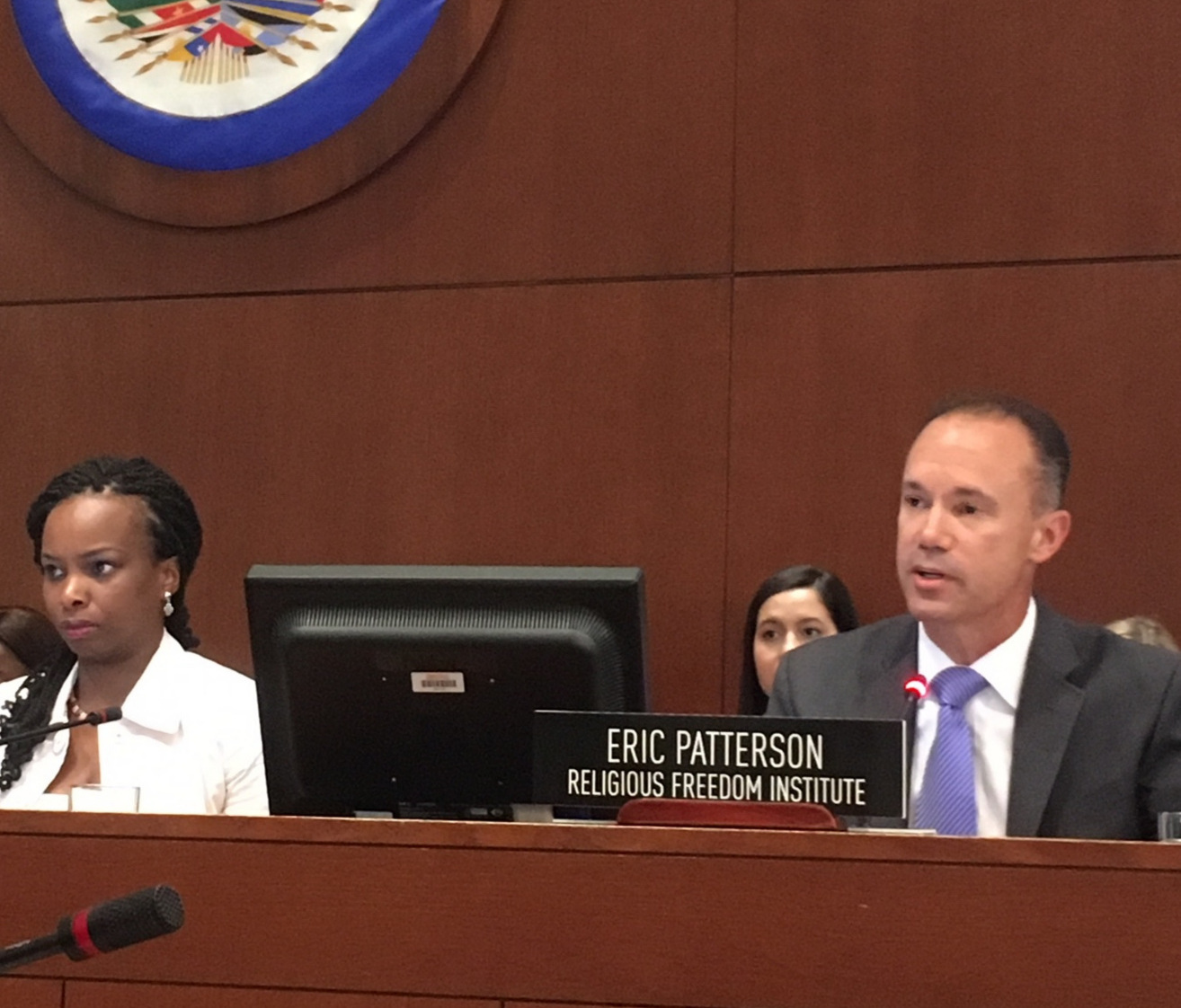On August 28, 2019, Religious Freedom Institute (RFI) Executive Vice President Eric Patterson delivered remarks before the Permanent Council of the Organization of American States (OAS). On the agenda for this session was the International Day Commemorating the Victims of Acts of Violence Based on Religion or Belief, which the UN observed on August 22, 2019. In his remarks, Patterson spoke with clarity and conviction about the crisis of religious persecution around the world.
“Sadly,” Patterson stated, “we live in a world that has become less, rather than more, free in recent years: more restrictions on liberties such as religion, assembly, speech, and the press; and, more persecution in some regions based on religious identity, religious conviction, and religious practice.”
Patterson pointed to two main types of religious persecution, one “perpetrated by those in power claiming a religious justification for harming others,” and the other involving the “targeting of individuals or communities for persecution because of their religion.” In recent years, examples of both types of persecution could be found in China, Sri Lanka, and countries where ISIS has had a foothold.
In light of the long history and current crisis of religious persecution around the world, Patterson urged:
[W]e must not become complacent. We must instead resolve to look closely at patterns that lead to repression, persecution, and violence in order to call out, and take resolute action against, systematic violations of human rights.
Turning his attention to the Western Hemisphere, Pattern made remarks that were geographically expansive. He described an increasingly “militant secularism” in Canada and the United States that “seeks to push religious people, religious institutions, and religious ideas entirely out of the public square.” In Latin America, on the other hand, Patterson outlined alarming circumstances in Cuba, Mexico, and Venezuela which involved government use of fines, detention, and other forms of harassment against certain religious individuals and institutions. He also highlighted violence and other maltreatment against certain faith communities by non-state actors in those countries.
Beyond identifying and condemning great acts of religious persecution, Patterson pointed to a crucial component of the solution: “[R]eligious freedom is critical to peace and security in our hemisphere.” Concluding with words about the value and meaning of religious freedom, Patterson recalled its proper scope:
Religious freedom encompasses the rights of individuals and communities to practice their beliefs in private and to exercise their religious convictions in public, including in civil society, economic enterprise, politics, and law.
Read Patterson’s full remarks here.
THE RFI BLOG

Is Egypt’s Government Trying To Take Over Christianity’s Most Important Monastery?

Does Southeast Asia Lead the World in Human Flourishing?

RFI Leads Training Session on Religious Freedom Law and Policy for U.S. Army War College

Oral Argument in Charter School Case Highlights Unconstitutional Motives Behind OK Attorney General’s Establishment Clause Claim

Largest Longitudinal Study of Human Flourishing Ever Shows Religion’s Importance
CORNERSTONE FORUM

Reaffirming Religious Freedom: Bridging U.S. Advocacy and Iraq’s Constitutional Framework

Political Polarization, Same-Sex Marriage and Religious Liberty

Bridging the Gap Between International Efforts and Local Realities: Advancing Religious Freedom in the MENA Region

Challenges to Religious Freedom in Iraq and the Critical Need for Action


